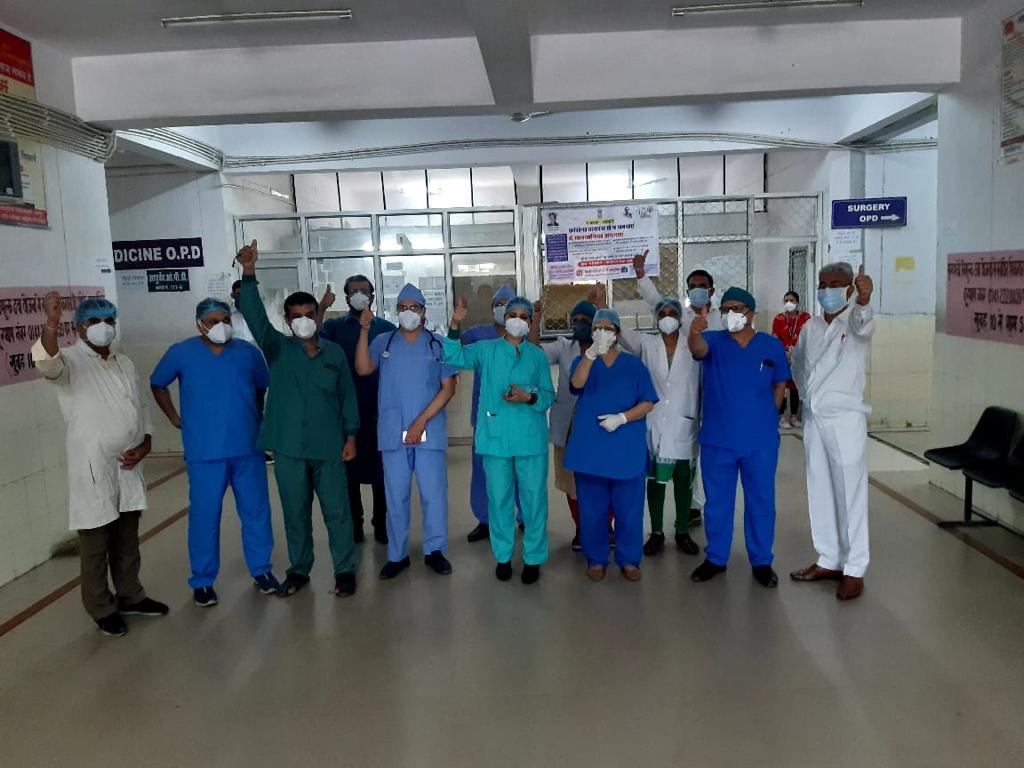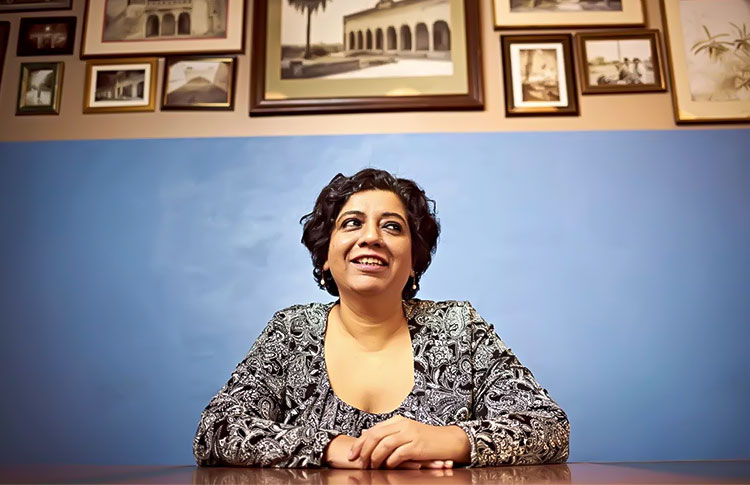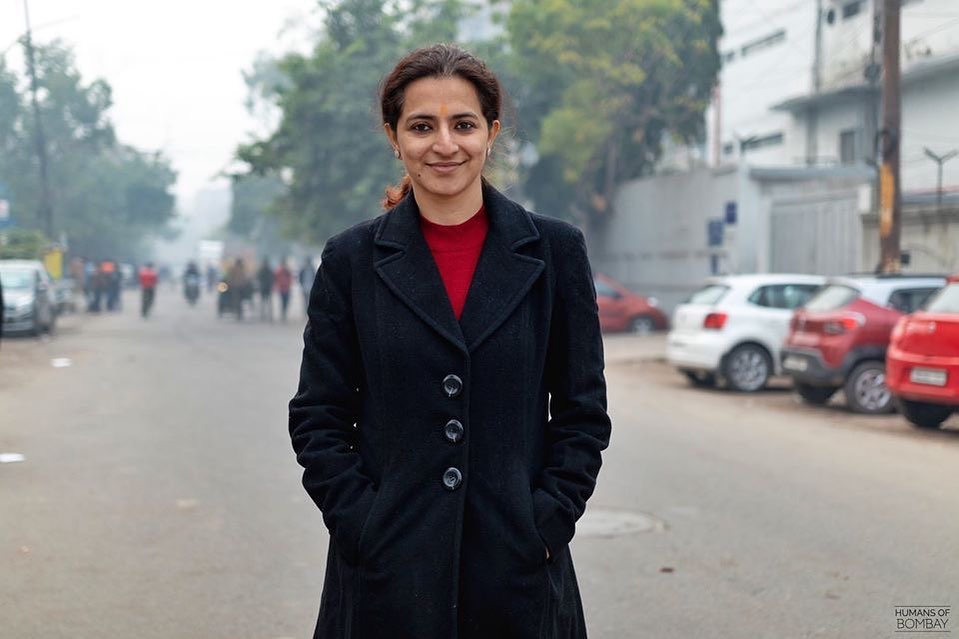English Girl Brought Up In An Indian Slum, Jillian Haslam Shares How A Tea Man’s Compassion Led Her To Success
- IWB Post
- August 21, 2019

What color is my skin?
Whose blood runs in my veins?
People ask Jillian Haslam why she’s helping underprivileged people in India, while she lives in the UK. She smiles each time and answers, “I’m a Kolkata girl after all, my heart and soul reside in India.”
Jillian Haslam shares her life not to reflect her struggles and how she overcame all of those to become a successful entrepreneur, instead, she reflects upon her life experiences to teach the world the real meaning of compassion and care.
Born to British parents in India, who chose not to return to England after India gained its independence in 1947, Jillian was the fifth of her 12 siblings. Four of the siblings died due to hunger and malnutrition and the rest of Jillian’s family were forced to live in dire conditions in Kidderpore slum, Calcutta (Now Kolkata).
Now, Jillian is an entrepreneur, motivational speaker, and a philanthropist. Though she’s settled in the UK, she runs six charities for various sections of the disadvantaged people in India.
In an hour-long Skype chat with me, Jillian bares her heart and recollects her struggling days which only added to her strength and willpower to carry on and become a ray of hope, not only for her own family but for million others who experience the same struggles as her.
Jillian’s story is one of survival, resilience and that of insurmountable hope telling you, ‘someday, things will be alright.’
I ask her about what kept her going at the time they were living under the stairs in Kidderpore slums, and she tells me that it has to be persistence.
“In so many of my sessions, I ask people, ‘Why is poverty holding us down?’ It’s because we have accepted our circumstances and our fates. My father, my mother, and even my siblings have accepted that this is what it is and we’ll have to live this way only. But, it only takes one person, one child to stand up and say, ‘I refuse to accept this fate!’ Only one mind and its imagination is what it takes to turn things around.”
“But, first you have to take that decision to carry on and then you have to be willing to put in the hard work and do whatever it takes to achieve what you have wished for. This is what persistence is!” she adds.
Before the interview, I read how Jillian’s parents didn’t return to England, and I wondered why. Why did they choose to stay in India, knowing too well the potential consequences? Hence, I inquire Jillian about the same.
She explains, “Hundreds of families from British were settled in India during British Raj. Both my parents were British and they had lived in India for all their lives. After India gained independence, we were given one year to go back. But, my father chose to stay in India. This decision, contrary to the general belief that British families had a luxurious life in India, was actually taken because my father loved the Indian weather. In England, it’s cold and rainy most of the time and for his entire life, my father had lived in India and loved the feel and environment of the country.”
However, Jillian confides in me that later, his father regretted his decision to not go back to England. “My father’s sister had returned to England with her entire family, but, as it turned out, after one year that the government gave to all the British families in India to return, they didn’t entertain or helped anyone. Many of us had to settle in India and after independence, there was such hatred and resentment amongst the people for us, the Britishers. I remember crying and telling my dad that why did we have to live here. I told him, ‘Don’t you see how they treat us, manhandle us, abuse us?’”
“My father told me that you cannot blame them. We took over their country and everything that was theirs, it’s natural for them to hate us.”
“’They have been subdued for so long. They never received education, they never got any opportunities. They wouldn’t treat us this way if they were educated. You understand, Jillian? My father would tell me,’ ” recalls Jillian and then tells me that even while living in slums, her mother brought together dozens of children and made them study every day.
Jillian tells me that for all the unkindness, abuse, and hard times she had faced, she also experienced kindness and compassion beyond imagination from people which instilled in her, early on, that compassion is what the world needs to be a better place.
Recollecting such memories of compassionate people who helped her survive and become what she is today, Jillian says, “Jayati, four of my siblings had died due to malnutrition. We lived under the stairs and we had no food to survive. But, there was this vegetable vendor who would give us the ‘bad’ potatoes and tomatoes at the end of the day. Then, there was this meat shop man who gave us the leftover meat for free. And, then there was Ashok, who had a tea stall, right in front of our room. I remember that Susan, my younger sister, was brought home from the hospital after three days. My mother told me that she had just a few days to live. I think, I was eight at the time and didn’t fully understand what death means. I only knew that baby needs milk. I went to the nearest shop I could find, which was in front of our room with a steel bowl in hand. I asked him to give me milk and he reprimanded me saying, ‘Do you think milk comes free?’ I kept standing there and then he took the bowl and filled it with milk. Thereafter, every single day, I would go and stand with the steel bowl in front of him. Some days, he would make me stand for hours before he took away the bowl angrily and poured milk in it, and every day, he would tell me not to come the next day asking for milk.”
“You see, Jayati, my sister survived. She is now settled in Australia, she’s married and has a beautiful little girl. This all could happen because of the milk that Ashok provided without ever asking for money or anything in return,” she tells me and I cannot gather myself to speak something for a few seconds.
Jillian calls herself a Kolkata girl and cherishes being an Indian by heart, as she says, “As I said, Jayati, people who helped me didn’t have enough for them, too, and yet they were never hesitant to share, but living here (the UK), you realize that there’s nothing that people share with each other. Having grown up in a country like India, where people who may have very little but even then they share it amongst their people, I, too, always share things. Just a small example, many times, when I went to buy coffee for myself, I would get it for everyone in the office. But, when someone else, some day, would get me coffee, they would put the bill on the table and say it’ll be 2 pounds.”
She continues, “I visit India twice or thrice every single year, and people here are so warm and welcoming. They bring flowers, they embrace me, they wait for me, they come to see me off at the airport. The warmth, the kindness people in India have towards others, it’s just not there anywhere and you have to live with it!”
I ask Jillian about her career graph and her moments of triumph and failure and she explains, “The biggest moment of triumph would be when I decided that I had to find a way out. At 17, I went to Delhi and took a few small jobs. I had understood by then that your hands are tied without money. You need finances to do anything, be anything. It was this time that I applied and was selected to work at Bank of America. I took up two jobs as I wanted to put in all the hard work that I could. In return, the only thing I sought was mentorship. I went to the CEO and asked him if he would mentor me. Surprised as he was, he said that no one had asked him for mentorship. He put a few conditions like I had to get his daughter to do home work, etc., and in return, he would mentor me for an hour or so.”
“I wasn’t a Harvard or Cambridge graduate, but I wanted to learn what these graduates know. I always sought mentorship from the brightest of minds. And, when you lack experience and money, you need to be very humble. You have to be willing to do anything that it takes to get what you want.”
As far as the failure is concerned, Jillian says, “My greatest regret is that I should have started earlier. I mean my inner passion was always to help others and I did it in my own capacity. But, I got the calling much later.”
Jillian has recollected her experiences in her book, ‘Indian. English.’ Interestingly, a Hollywood film is also being made based on her book. Talking about the film, Jillian reveals to me one condition that she had put forth to the producers.
“Unfortunately, most people see India only in bad light: poverty-stricken, squalid, and dingy lanes, etc. Even in Hollywood movies, they depict it in a certain way and I told the producers that it wouldn’t happen in this film. Of course, they will have to show the backdrop, where we lived, our room, etc., but I want them to show the beauty of India, the beauty which lies in the people who reside here. In these simple souls, lies a grace beyond compare! I want my story to reflect their stories of compassion and love and selfless care for others.”
“Share with me that one page/chapter in the book that you have bookmarked in your memory and keep re-visiting,” I insist and she sighs, “Ah, there are so many!”
“But, I keep going to the chapter where I talk about my mother. I saw her starve in order to feed us. Every day, we were only given a roti, a little gravy, and a handful of meat. We would be so hungry that we would just get on it as soon as it came. Only after we were finished, we would realize that mother hadn’t eaten. We would ask her, ‘What will you eat?’ and she would smile and reply, ‘My friends have made me eat so much that I have no stomach left to eat more.’ She was abused, too, beaten sometimes by the owner who gave us the place to live under the stairs, but she tolerated it all. She sacrificed her entire life to protect us and raise us. It needs so much strength! I titled this chapter, ‘Homage to a noble fighter,’” she says and at the loss of words, I sit silent, ‘trying’ to imagine all that she has just said.
Finally, I ask her what keeps her positive all day and the things she does to nourish her soul, she laughs and spills her secret.

“I work out every day! Keeping your body healthy is the key and many people fail to realize this. I stay away from junk and eat healthy and very mindfully. Then, I have Facebook pages, where I post inspirational quotes every day. Motivational quotes feed your mind and fuel you to achieve your goals. And most importantly, I understand that I have the power to choose. I can choose what I want to become. We all can!”
P.S. To know more about Jillian Haslam and her work, you may visit her website, here. To know about her Trust and charity work and if you wish to contribute to her vision, visit Remedia Trust website, here.
This article was first published on Dec 24, 2017.
- 0
- 0












